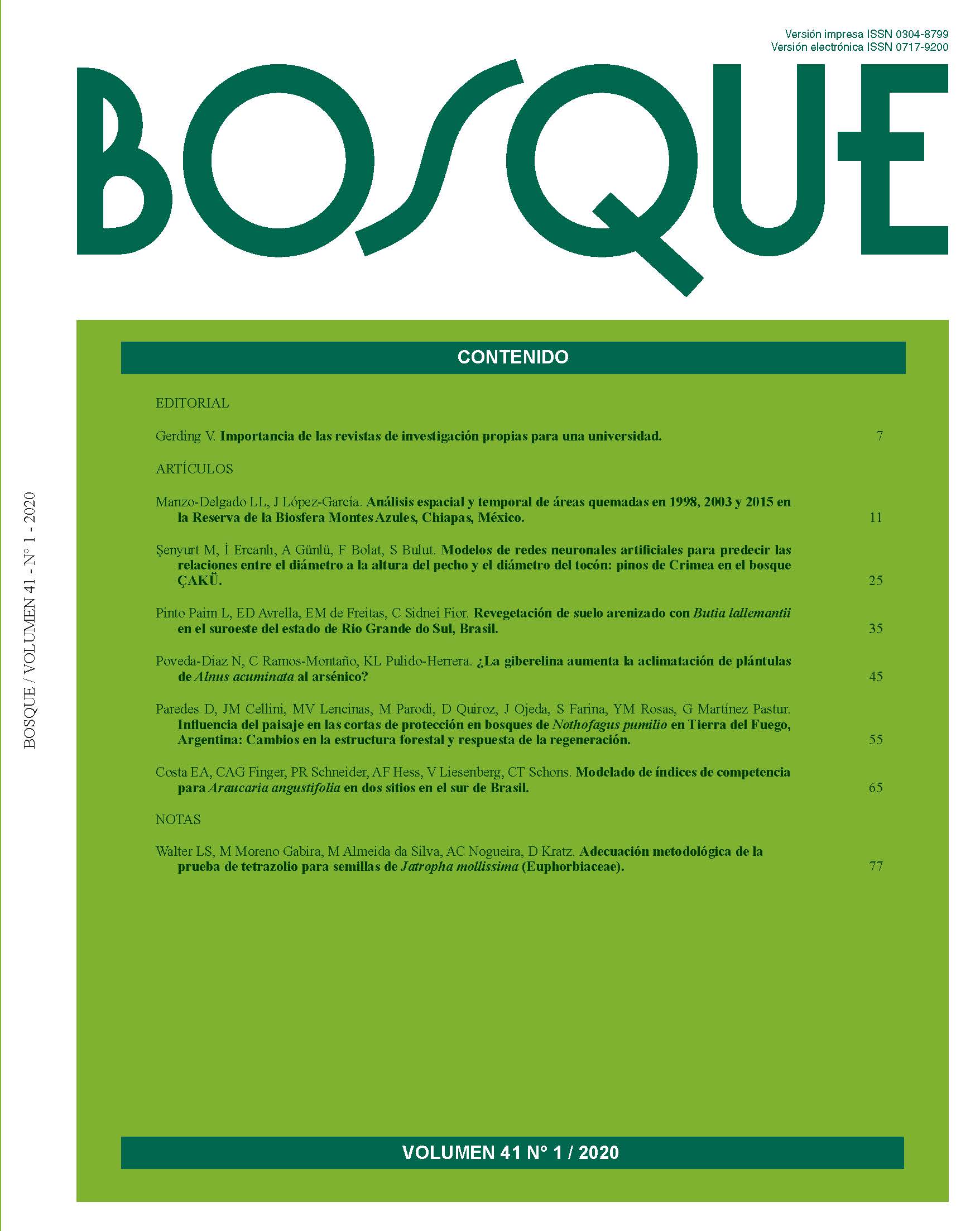Adjustments in the tetrazolium test methodology for assessing the physiological quality of Jatropha mollissima (Euphorbiaceae)
Main Article Content
Abstract
Jatropha mollissima is a species of the semiarid region of northeastern Brazil. It is known that individuals of the same species may present differences in seeds viability, thus it is necessary to define methodologies to evaluate the physiological potential of seeds. This study aimed at determining the best pre-moistening time and the concentration of the tetrazolium solution to evaluate the viability of J. mollissima seeds. Three pre-moistening times were tested (12, 14 and 16 hours) and two tetrazolium solution concentrations (0.25 and 0.5 %). As a comparative study, a germination test was performed, which consisted of two treatments: seeds between paper and on vermiculite. The values obtained in the tetrazolium test were similar, with average viable seeds of 21.3% for concentration 0.25 % and 27.3 % for the concentration of 0.5 %. It was observed, in the germination test, that the percentage of germination had averages equal to 22.5 % for the treatment between paper and 13.5 % for the treatment with vermiculite. The best procedure for performing the tetrazolium test in J. mollissima seeds is using the concentration of 0.25 % of tetrazolium solution, pre-moistening time of 16 hours, between paper at 25 ºC and staining for 4 hours at 40 °C in the dark.

